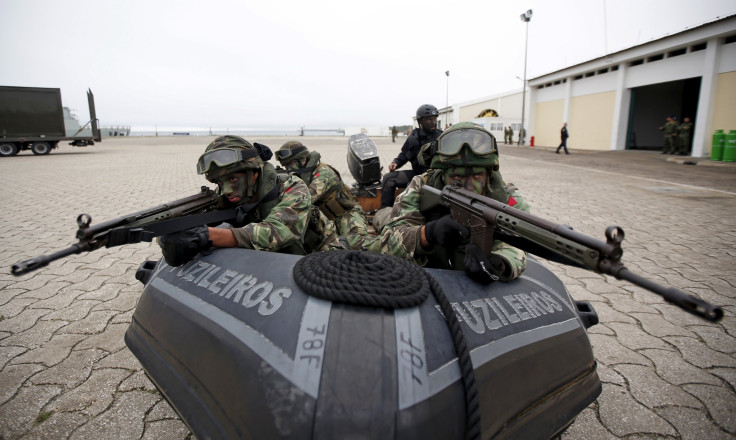Amid Regional Tension, NATO Must 'Overcome' Russia's Military Buildup, Says Alliance Head

With one day left in NATO’s largest military exercises in more than a decade, the head of the military and political organization said Thursday that more needs to be done to counter Russia’s military buildup in the eastern Mediterranean, Black Sea and Baltic region, Agence France-Presse reported. Jens Stoltenberg told reporters the 28-member alliance must focus more on Eastern European states that have been worried over Russia’s aggressive actions since the Kremlin’s annexation of Crimea from Ukraine in March 2014.
“This is a military build-up which provides the Russians with what many experts call Anti-Access/Area Denial (A2/AD) capabilities,” Stoltenberg said. “We have to be sure we are able to overcome these capabilities so we can reinforce and deploy forces if needed.”
Since Russia’s annexation of Crimea and the ensuing conflict in Eastern Ukraine, NATO has increased its presense in bordering states with forward command units now in Bulgaria, Estonia, Latvia, Lithuania, Hungary and Romania.
Stoltenberg also said it was time for NATO to renegotiate the Cold War-era Vienna document with Russia over military exercises and put in place emergency procedures, the Financial Times reported.
“Now, with more military presence in Europe, more exercises, increased tensions, incidents or accidents could create misunderstandings that could spiral out of control,” he said. NATO and Russia are required to inform each other of military exercises as well as any new deployments. Russia has not followed this agreement with snap military exercises in recent years.
Stoltenberg’s remarks come the same day as Russian officials confirmed that Moscow had sent anti-aircraft missiles to Syria. Russian officials said the missiles were meant to protect their jets on the ground. Russia began its airstrikes in Syria Sept. 30 causing increased tensions with western leaders.
“There can be different emergencies, such as hijacking the jet on the territory of a neighboring country or an attack on it,” said Col. Gen. Viktor Bondarev, according to the Associated Press. “We should be prepared for that.”
NATO leaders were scheduled to meet in Warsaw in July 2016 with plans to discuss increasing the alliance’s presence close to Russia’s border.
© Copyright IBTimes 2024. All rights reserved.






















